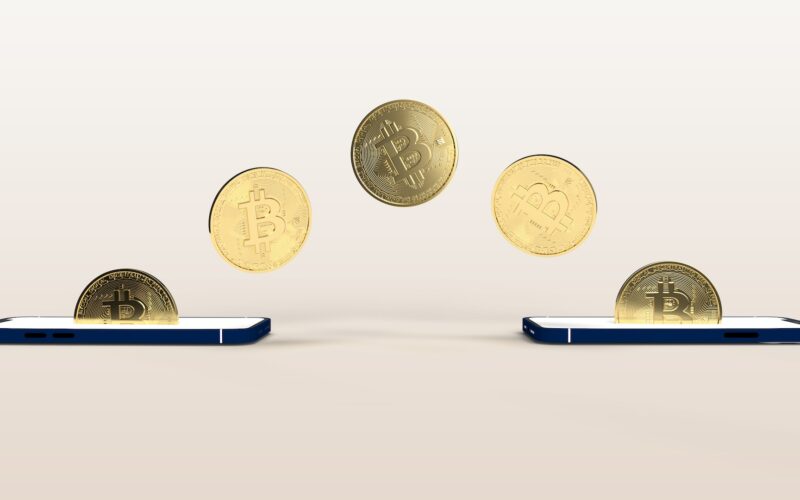In today’s dynamic digital environment, the increasing prominence of cryptocurrencies is finding its way across diverse sectors, including education. The surging traction of online learning and educational platforms underscores a compelling opportunity to seamlessly infuse the capabilities into these systems, a prospect that has captured considerable interest. Within this context, this article takes an incisive look into the potential dividends, inherent challenges, and broader implications tied to the integration within online education and e-learning realms. By doing so, it ventures into how this amalgamation stands to potentially revolutionize our comprehension of financial transactions within the domain of education. If you are interested in learning more about Bitcoin, you can gather more information here.
Understanding Bitcoin’s Relevance in Education
Embracing Financial Literacy
The integration of Bitcoin into online education provides a unique opportunity to educate students about cryptocurrencies, blockchain technology, and financial literacy. As digital currencies become increasingly relevant, equipping students with the knowledge to navigate this emerging landscape is invaluable. Incorporating Bitcoin-related content into curricula can empower learners to make informed decisions about investments, transactions, and the future of finance.
Global Accessibility and Inclusivity
Bitcoin’s borderless nature holds the potential to revolutionize access to education. In many parts of the world, traditional banking systems are inaccessible or inefficient, making international transactions cumbersome. By embracing Bitcoin, online education platforms can transcend these limitations, enabling learners from underserved regions to seamlessly transact and access educational resources without the constraints of conventional banking systems.
Benefits of Bitcoin Integration
Reduced Transaction Fees
Online education platforms often grapple with payment processing fees, especially for international transactions. Bitcoin transactions, however, operate on decentralized networks and can significantly reduce transaction costs. This cost-effectiveness could translate to lower course fees, making education more affordable and accessible.
Efficient Micropayments
Bitcoin’s inherent divisibility, a characteristic that allows it to be broken down into smaller units, opens the door to the concept of micropayments within the realm of education. This revolutionary feature empowers students by granting them the ability to precisely pay for individual lessons, modules, or learning resources, eliminating the need to commit to an entire course upfront. This newfound flexibility holds the potential to resonate with a wider spectrum of learners, as it enables them to tailor their educational paths according to their specific requirements and preferences, while also ensuring they only incur costs for the exact components they engage with.
Enhanced Data Security
Leveraging the underlying blockchain technology of Bitcoin, an innovation characterized by its encryption and decentralized architecture, presents a robust avenue for bolstering data security within the educational domain. This advancement holds the promise of fortifying the protection of critical assets such as student records, certificates, and personal information, effectively erecting a bulwark against the looming threat of data breaches and unauthorized access. By harnessing the inherent security features of blockchain, institutions can ensure the integrity and confidentiality of sensitive information, fostering an environment of trust and privacy that is paramount in educational contexts.
Challenges and Considerations
Volatility and Financial Risk
Bitcoin’s notorious price volatility raises concerns about financial stability. Fluctuations in value could result in unexpected changes in course fees or resource costs, potentially posing financial challenges for both students and educators. Implementing mechanisms to mitigate this risk, such as instant conversion to stablecoins, would be essential.
Technical Proficiency
For Bitcoin integration to succeed, both educators and students must possess a certain level of technical proficiency. Navigating wallets, addresses, and transactions might be daunting for those unfamiliar with cryptocurrencies. Offering user-friendly interfaces, tutorials, and support systems will be crucial to ensure a smooth transition.
The Future Landscape
As online education and e-learning continue to reshape the educational landscape, the integration of Bitcoin presents exciting possibilities for innovation. Imagine a scenario where students earn Bitcoin tokens as rewards for completing assignments or achieving milestones. These tokens could be exchanged for educational resources, certificates, or even traditional currency.
Furthermore, the blockchain’s transparency could revolutionize credential verification, eradicating doubts about the legitimacy of certificates. Educational institutions could issue blockchain-based certificates, which would be easily verifiable by employers and other educational institutions, bolstering the credibility of online education.
Conclusion
In conclusion, the seamless integration of Bitcoin into online education and e-learning platforms represents a paradigm shift that could redefine the educational experience. While challenges such as volatility and technical proficiency need to be addressed, the potential benefits, including global accessibility, reduced transaction fees, and enhanced security, are enticing. By embracing this innovative convergence, the education sector has the opportunity to lead the way in preparing students for a future where cryptocurrencies and blockchain technology play an increasingly integral role.




